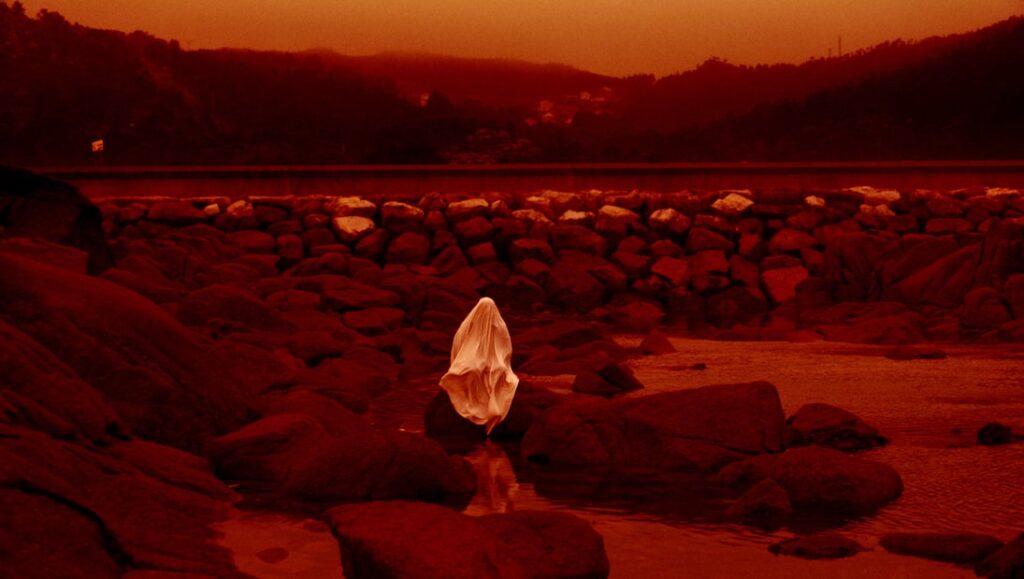Red Moon Tide offers impressive sonic and visual craft, but is somewhat undermined by its weaker narrative and character elements.
An elegiac stillness envelops the population of a coastal town, the death of one of their own evoking a history where the laden myths of sea monsters find agency over their livelihoods. Civilians become the ghosts they mourn, the film rendering them an amalgam of their sorrows and the nature that encompasses them, whether in textured, creeping wide shots shrouded in forestry and domestic anonymity, or in dejected close-ups which persist in portraying a collage of faces, all with the same glazed lack of presence. The sonic landscape of Red Moon Tide offers substance as deep as any of its visuals, the euphonious tonal bellows suggesting said monster’s omniscience, offering a total vision, even if dislocated from the images that are specifically chosen to not romanticize the reality these people live in. This is a common device found in director Lois Patiño’s previous work, and in this, his second feature, the aesthete’s more tactile eye seeks beauty in a tableau of the quotidian — he gradually situates the surreal as an innate foundation for lives he observes, here existing on the intersection of contemporary fiction and cultural mythology.
What’s atypical here is the interiority he attempts to capture, the human element superseding the technical, and there is a dissonance, which undeniably stunts the film’s accomplishment. For all of Red Moon Tide’s formal specificity and realized inertia, the work’s driving narrative is executed according to trite, passive engagement with the humanity it seeks to transform into metaphor. With Each frame and each represented character, the proceedings become a transparent conceptualization; these literalizations condemn the film to a purgatorial stasis, creating something in past tense. The individual, in this context, becomes part of a collective consciousness, rapt by tragedy and stripped of identity. As the voiceover oscillates through time, navigating reflections and lamentation, sadness is objectified, transformed into sterility, made manifest in white sheets (placed by witches) that will offer anonymous form under the shadows of an encroaching red night. It’s the exercise in ethereality, itself, that obscures the facets which would offer access into the subconscious of its subliminal horrors, instead opting for the ubiquity of contemporary slowness, a ghost story haunting vacant spaces.
You can stream Lois Patiño’s Red Moon Tide on Mubi beginning on April 20.
Originally published as part of Berlin International Film Festival 2020 | Dispatch 1.


Comments are closed.